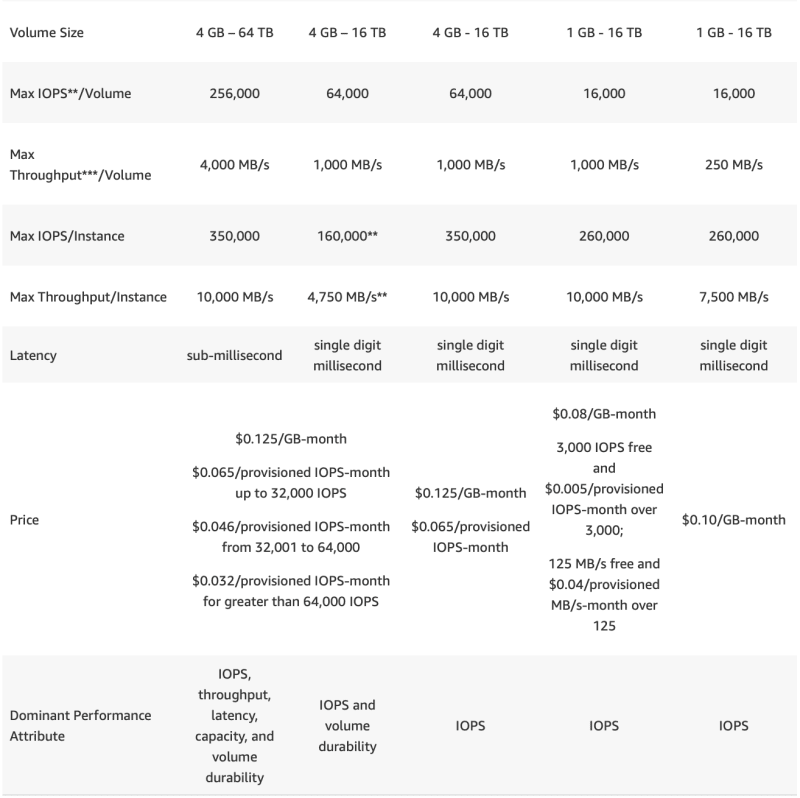In the world of cloud infrastructure, selecting the right storage solution is essential to getting the best performance and reliability. I don’t say it as a AWS Storage Community Builder, I tell it also as a regular AWS customer. I started to think about writing this article when I had to choose between EC2 Storage and EBS (Elastic Block Store).
Contrary to popular belief, I decided on EC2 Storage despite its ephemeral nature. I’ll explain the motivations behind my unusual choice in this article, as well as the benefits that EC2 Storage offers.
First thing first;
1- EC2 Storage vs EBS:
Before diving into the logic behind my choice, let’s establish a foundational understanding of EC2 Storage and EBS. If you are already familiar with the services, you can simply skip this section. The local instance storage that comes with Amazon EC2 instances is referred to as “EC2 Storage”; it provides high-speed performance temporary block-level storage but lacks durability. EBS, on the other hand, offers robust and long-lasting block storage that is compatible with EC2 instances. While EBS is frequently the preferred option, I needed to go against it because of my client’s requirement, but I decided to investigate the unrealized potential of EC2 Storage. If you want to read more about other possible storage solutions on AWS, I recommend you to read my article.
Main reason is;
2- Superiority of Performance:
One of the main reasons and also the ultimate one, for choosing EC2 Storage was its exceptional performance. With EC2 Storage, you can simply experience lightning-fast data access, accelerated disk I/O, and remarkably low latency. Me personally in this use case, I had a database requires a block storage with the throughput to support several million transactions per second. If you look closer to the EBS; you can get more information about EBS types. Although let me give a quick answer; 350,000 IOPS. Well if you don’t know what IOPS is, Input/output operations per second **(IOPS*, pronounced *eye-ops) is an input/output performance measurement used to characterize computer storage devices like hard disk drives (HDD), solid state drives (SSD), and storage area networks (SAN). Like benchmarks, IOPS numbers published by storage device manufacturers do not directly relate to real-world application performance.
And unrevealed potential;
3- Flexible and Cost-Efficient:
EC2 Storage’s inherent flexibility and cost effectiveness were further strong arguments in its favor. As an ephemeral storage option, EC2 Storage can be dynamically provisioned and terminated as needed. This flexibility empowered me to design highly scalable and fault-tolerant architectures, leveraging auto-scaling capabilities and reducing unnecessary costs associated with persistent storage.
I chose a different route by embracing the ephemeral nature of EC2 Storage in a world where EBS is frequently seen as the de facto option for persistent storage. The client requirement for superior performance, flexibility, and cost effectiveness motivated me to architect this solution. I wanted to use this blog to show off EC2 Storage’s latent potential and encourage readers to choose a creative storage solution. Even while EC2 Storage might not be appropriate for all use cases, it has changed the game for me. We can open new doors and significantly improve our cloud infrastructure by questioning the established quo and looking at other solutions.
Remember, sometimes it’s worth venturing into uncharted territory to uncover hidden gems that can revolutionize our technological landscapes. I also encourage you to read this article to get more detailed about using AWS EC2 instance store vs EBS for MySQL.






Top comments (0)